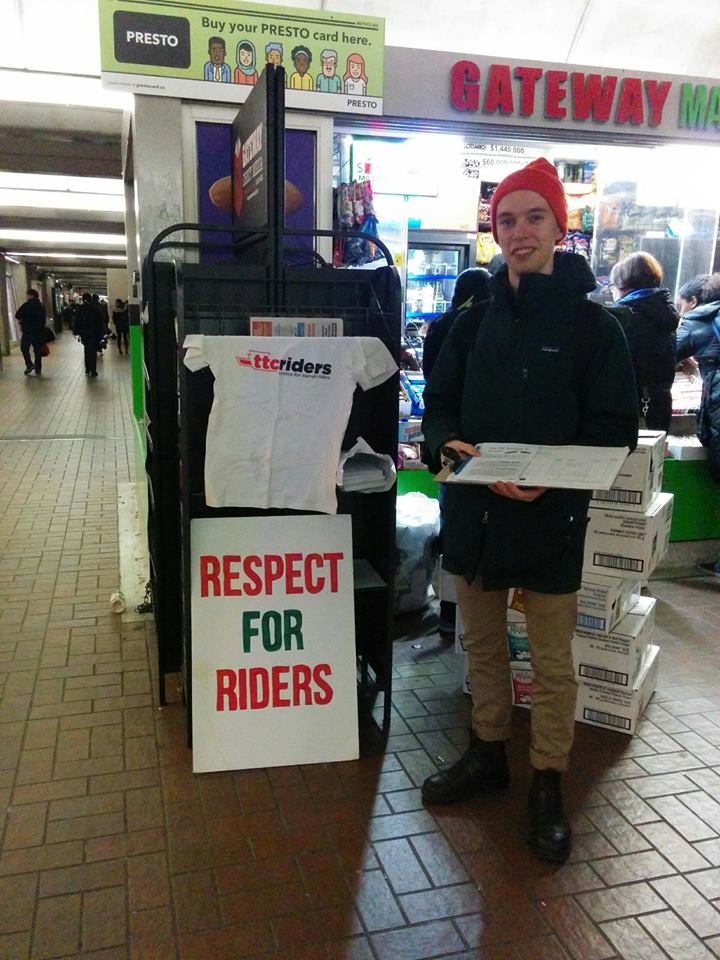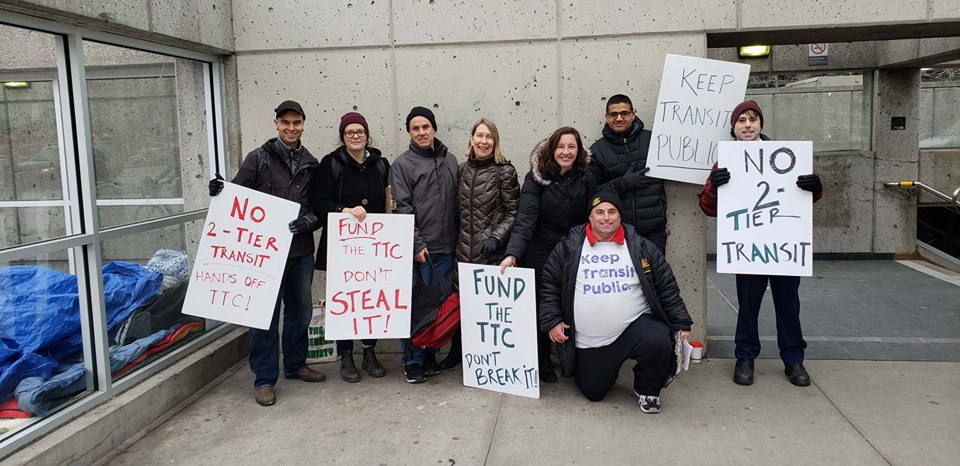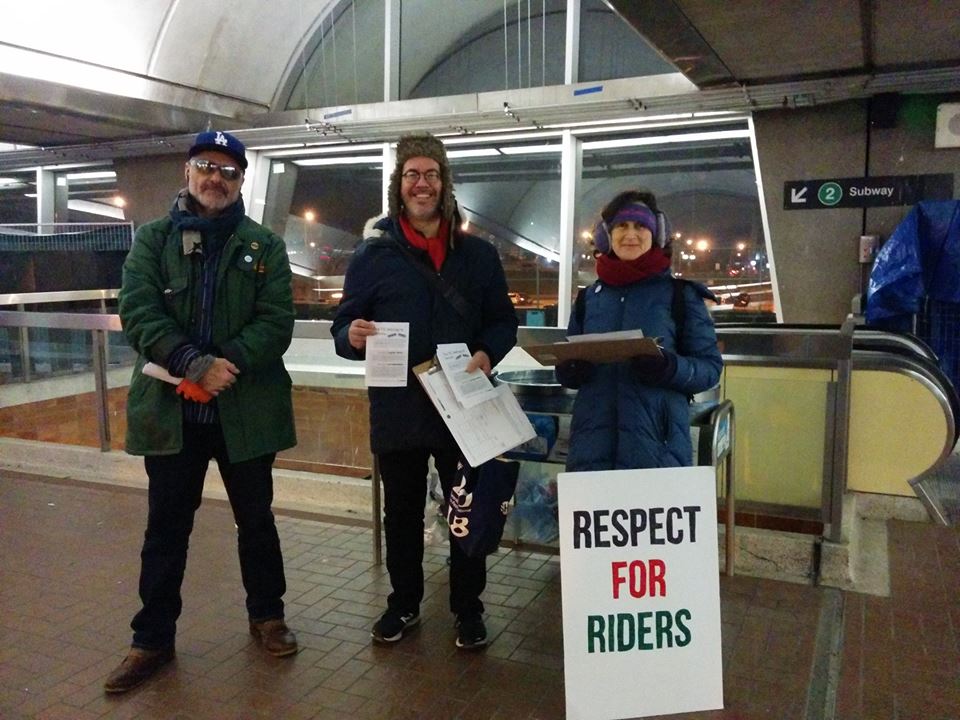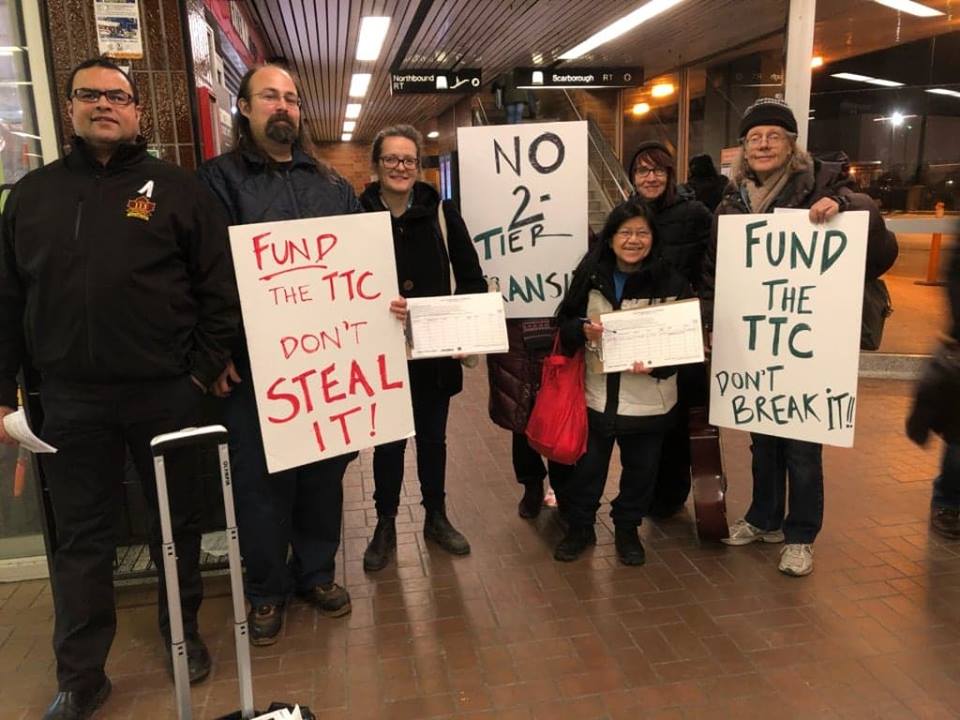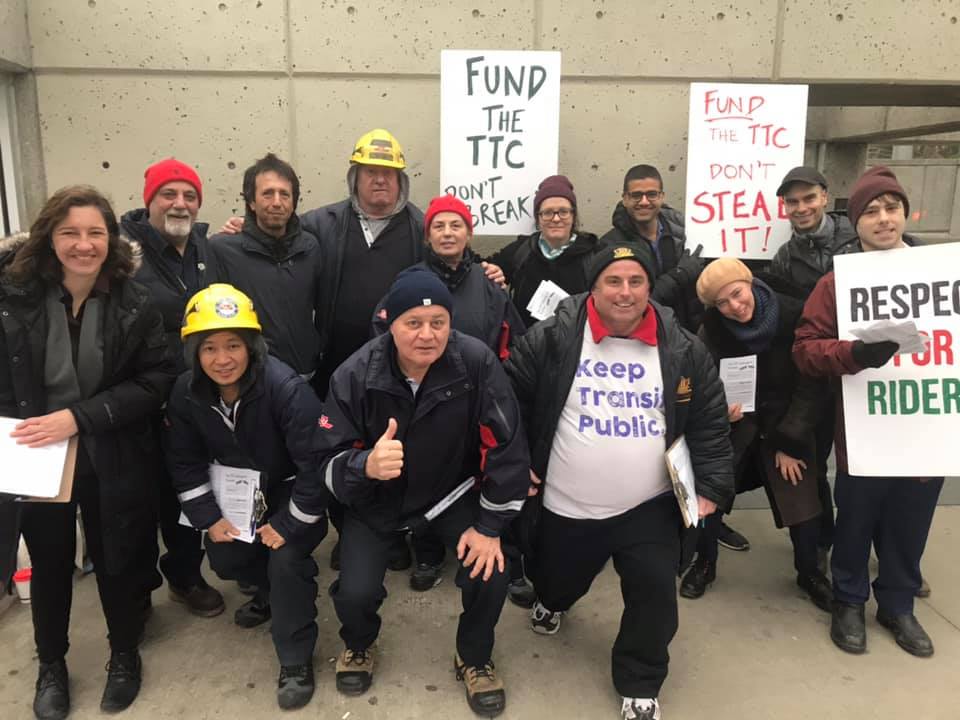To improve the TTC, the Government should fund it properly – not break it apart. A divided system raises issues of accountability and integration while taking the first step in a slippery slope towards privatization, delays and fare hikes. ATU Local 113 calls on Torontonians to stand together to protect the public transit system we all rely on – and pay for — by signing the petition. You can also read an in-depth explainer on why uploading Toronto’s subway is a bad idea below.
We own it
The people of Toronto pay for the subway through property taxes and fares. We will be giving up this valuable asset in return for a sum that falls far short of what is needed to keep the system in good repair.
Premier Ford has pledged $5 billion in new money for subways in Toronto. But according to transit experts, that will barely cover the cost of maintaining the subway. What happens if the provincial government decides not to invest the money needed to keep the subway running safely and efficiently? Or what if there is a disagreement between the city and the province over what expenditure is required?
A system in chaos
The TTC is currently a deeply integrated system. Buses connect with streetcars and subways; station staff serve passengers of all forms of transit; TTC maintenance and operations buildings are shared with subway facilities; materials for all kinds of vehicles are procured by the same TTC department; building trades do construction, plumbing and electrical work for all services. Transit Control has a direct line to emergency services for all TTC facilities.
If the subway handed over to Metrolinx, these services will no longer be under one authority. Transit experts predict that detaching one part of the system will deliver administrative chaos, political conflict and planning gridlock for years to come.
Higher fares
The TTC is currently a deeply integrated system. Buses connect with streetcars and subways; station staff serve passengers of all forms of transit; TTC maintenance and operations buildings are shared with subway facilities; materials for all kinds of vehicles are procured by the same TTC department; building trades do construction, plumbing and electrical work for all services. Transit Control has a direct line to emergency services for all TTC facilities.
According to a recent report, the TTC relies on the farebox more than any other city in North America, with 70% of revenue coming from fares.
Some portions of the subway are very profitable, and their surpluses help subsidize the rest of the system. If the TTC lost revenue from the subway, fares on buses and streetcars would have to rise to compensate.
No say
Uploading the subway will take transit planning out of the hands of city planners and council who are accountable to the people of Toronto.
If the upload goes ahead, the subway would be transferred to Metrolinx, the province’s transportation agency. Unlike Toronto City Council, Metrolinx is unaccountable to the public. Metrolinx board meetings are closed to the public and there are no in-person deputations allowed, including by politicians or city councillors. Metrolinx board members are recruited from the private sector and are appointed, not elected. If Metrolinx becomes responsible for the subway, who will citizens advocate or complain to about service levels, cleanliness, or fares?
Opens the door to privatization
Uploading is the first step towards selling off the system to the private sector.
Monte McNaughton, Ontario Minister of Infrastructure says his government is committed to using the private sector to deliver transportation infrastructure. But privatization has failed in many other jurisdictions. Private companies have no incentive to keep fares reasonable or to provide services that are unprofitable. They cut corners on maintenance to save money for shareholders. Financial problems can cause them to raise prices on a project, go bankrupt or walk away, leaving the public sector to pick up the pieces.
Loss of good jobs in Ontario
Currently, TTC subway workers are covered by a collective agreement that provides decent wages, job security, pensions and health and safety protection. These jobs contribute to the economic well-being of workers’ families and their communities. The proposal to upload the subway leaves the future of thousands of transit workers in the GTA uncertain.
